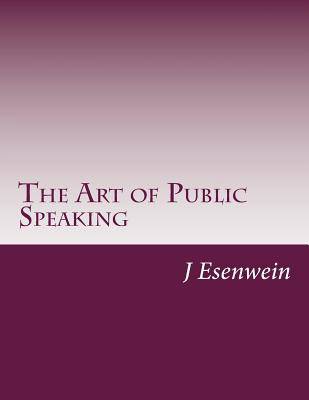
- Retrait gratuit dans votre magasin Club
- 7.000.000 titres dans notre catalogue
- Payer en toute sécurité
- Toujours un magasin près de chez vous
- Retrait gratuit dans votre magasin Club
- 7.000.0000 titres dans notre catalogue
- Payer en toute sécurité
- Toujours un magasin près de chez vous
14,95 €
+ 29 points
Format
Description
The efficiency of a book is like that of a man, in one important respect: its attitude toward its subject is the first source of its power. A book may be full of good ideas well expressed, but if its writer views his subject from the wrong angle even his excellent advice may prove to be ineffective. This book stands or falls by its authors' attitude toward its subject. If the best way to teach oneself or others to speak effectively in public is to fill the mind with rules, and to set up fixed standards for the interpretation of thought, the utterance of language, the making of gestures, and all the rest, then this book will be limited in value to such stray ideas throughout its pages as may prove helpful to the reader-as an effort to enforce a group of principles it must be reckoned a failure, because it is then untrue. It is of some importance, therefore, to those who take up this volume with open mind that they should see clearly at the out-start what is the thought that at once underlies and is builded through this structure. In plain words it is this: Training in public speaking is not a matter of externals-primarily; it is not a matter of imitation-fundamentally; it is not a matter of conformity to standards-at all. Public speaking is public utterance, public issuance, of the man himself; therefore the first thing both in time and in importance is that the man should be and think and feel things that are worthy of being given forth. Unless there be something of value within, no tricks of training can ever make of the talker anything more than a machine-albeit a highly perfected machine-for the delivery of other men's goods. So self-development is fundamental in our plan.
Spécifications
Parties prenantes
- Auteur(s) :
- Editeur:
Contenu
- Nombre de pages :
- 146
- Langue:
- Anglais
Caractéristiques
- EAN:
- 9781499663952
- Date de parution :
- 26-05-14
- Format:
- Livre broché
- Format numérique:
- Trade paperback (VS)
- Dimensions :
- 216 mm x 279 mm
- Poids :
- 353 g

Les avis
Nous publions uniquement les avis qui respectent les conditions requises. Consultez nos conditions pour les avis.






